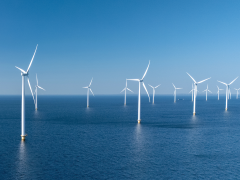Introduction to the AMPERE model intercomparison studies on the economics of climate stabilization
Climate stabilization requires ambitious policies to transition to low carbon economies within this century. Although the international community has recognized the goal to limit global warming to 2°C above preindustrial levels, it is uncertain what level of mitigation activity can be expected over the coming decades. International climate policy to date has been fragmented and focused on the short term, and the emissions abatement commitments made for 2020 at the conferences of parties in Copenhagen and Cancun do not set a trajectory for climate stabilization unless they are followed by substantially increased ambitions.
The AMPERE project (Assessment of Climate Change Mitigation Pathways and Evaluation of the Robustness of Mitigation Cost Estimates) has brought together 22 European and international research institutes to gain a better understanding of the mitigation challenges ahead. AMPERE conducted several model intercomparison studies on the implications of short-term climate action for the achievability of long-term targets, the implications of regional climate policies and staged accession to a global climate regime. The key findings of the AMPERE project were summarized for decision makers and stakeholders. A database of the scenarios developed in the AMPERE studies has also been made available.
Authors
Specifications
- Publication title
- Introduction to the AMPERE model intercomparison studies on the economics of climate stabilization
- Publication date
- 20 November 2014
- Publication type
- Publication
- Magazine
- Technological Forecasting and Social Change
- Product number
- 1664




